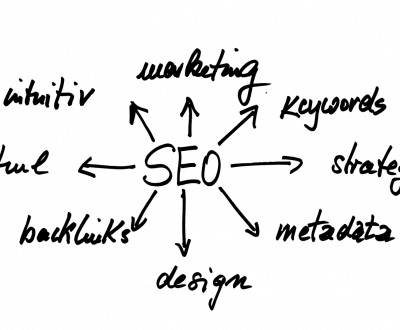Table of Contents:
- Introduction
- The Basics of Search Engine Optimisation
- On-Page SEO
- Off-Page SEO
- Technical SEO
- The Role of Keywords
- SEO and User Experience
- Measuring SEO Success
- Frequently Asked Questions (FAQ)
- Conclusion
Introduction
Search Engine Optimisation (SEO) is a fundamental aspect of online visibility. But how does SEO work, and what are the key strategies that drive website traffic? This comprehensive guide delves into the intricacies of SEO, exploring its various components, from on-page and off-page SEO to technical SEO and the role of keywords.
The Basics of Search Engine Optimisation
SEO is the process of improving a website’s visibility on search engines like Google. It involves a range of strategies and techniques aimed at increasing a website’s ranking in search results. SEO is essential for driving organic (non-paid) traffic to your website.
On-Page SEO
On-page SEO involves optimizing individual web pages to rank higher and earn more relevant traffic in search engines. It includes tactics like optimizing content, meta tags, and internal links.
Off-Page SEO
Off-page SEO focuses on improving the website’s authority and credibility. It includes strategies like link building, social media marketing, and online reputation management.
Technical SEO
Technical SEO deals with the website’s technical aspects, such as site speed, mobile-friendliness, and structured data. It ensures that search engines can easily crawl and index your site.
The Role of Keywords
Keywords are at the core of SEO. They are the words and phrases users type into search engines. Effective keyword research and usage help your content align with what your audience is searching for.
SEO and User Experience
A crucial aspect of SEO is providing a positive user experience. Factors like page load speed, mobile-friendliness, and a well-structured site contribute to user satisfaction.
Measuring SEO Success
Understanding the impact of SEO efforts is essential. Metrics like organic traffic, keyword rankings, and conversion rates help evaluate SEO performance.
Frequently Asked Questions (FAQ)
Q1: What is the primary goal of SEO?
A1: The primary goal of SEO is to increase a website’s visibility on search engines, driving organic (non-paid) traffic to the site.
Q2: How long does it take to see SEO results?
A2: SEO is a long-term strategy. Results can take several months to become noticeable, but the long-lasting benefits are worth the investment.
Q3: What is the difference between on-page and off-page SEO?
A3: On-page SEO involves optimizing individual web pages, while off-page SEO focuses on external factors like link building and social media.
Conclusion
SEO is a multifaceted strategy that significantly impacts a website’s online visibility. Understanding the basics of on-page, off-page, and technical SEO, as well as the role of keywords and user experience, is crucial for success in the digital landscape.
About us and this blog
We are a digital marketing company with a focus on helping our customers achieve great results across several key areas.
Request a free quote
We offer professional SEO services that help websites increase their organic search score drastically in order to compete for the highest rankings even when it comes to highly competitive keywords.
We offer a FREE Website Audit. No Charge, No Catch, simply add your website, the email address to send report. We will send you a website audit report highlighting any website issues, broken links, alt tags missing, duplicate titles etc along with a Google Analysis of your content.
Recent Posts
All Website Tags
- Advanced SEO Analytics
- AI and Machine Learning in SEO
- Algorithm Updates and SEO
- Algorithm Updates and SEO News
- Alt Text (Alternative Text)
- Analytics and Insights
- Anchor Text
- Audit
- Backlink Monitoring and Management
- Backlinks
- Black Hat SEO
- Brand Awareness
- Canonical URLs
- Content Creation Chronicles
- Content Marketing
- Content Marketing Corner
- Content Marketing for SEO
- copywriting
- CTR (Click-Through Rate)
- Digital Authority
- Digital Diagnostic
- Digital Diagnostic for SEO
- Digital Health Assessment
- Digital Marketing Trends
- Domain Authority DA
- Duplication
- E-Commerce SEO
- Email Marketing Mastery
- External Linking
- Google Core Update
- Google My Business GMB
- Heading Tags (H1, H2, H3, etc)
- Healthcare SEO Strategies
- Indexing
- Internal Linking
- Internal Linking Strategies
- International SEO Strategies
- Keyword Analysis and Optimisation
- Keyword Research and Analysis
- Keywords
- Link Building
- Link Building for SEO
- Link Building Strategies
- Link Building Techniques
- Link Building Tools and Tips
- Local SEO Spotlight
- Local SEO Strategies
- Market Research
- Marketing
- Marketing Mix
- Meta Tags (Title, Description)
- Mobile SEO
- Off-Page Optimisation
- Off-Page SEO
- On-page SEO
- Online Audit Insights
- Online Audit Insights for SEO
- Optimise Your SEO
- Optimise Your Website
- Organic Traffic
- Page Authority
- Page Load Speed
- Paid Search (PPC)
- Ranking
- Reputation Management and Online Branding
- Search Engine Optimising Service
- Search Ranking Analysis
- SEO
- SEO Analytics and Reporting
- SEO Diagnostic Lab
- SEO Evaluation Toolkit
- SEO for Beauty
- SEO for Blogs and Content Platforms
- SEO for Hair Salons
- SEO for Spas
- SEO for Startups
- SEO for WordPress Websites
- SEO Health Assessment
- SEO Health Check
- SEO Performance Checkup
- SEO Success Secrets
- SERP
- Site Performance Analysis
- Social Media Integration for SEO
- Social Media Strategies Unveiled
- Target Audience
- Technical SEO
- Technical SEO Demystified
- Video SEO for YouTube
- Web Presence Checkup
- Website Health Check
- White Hat SEO









